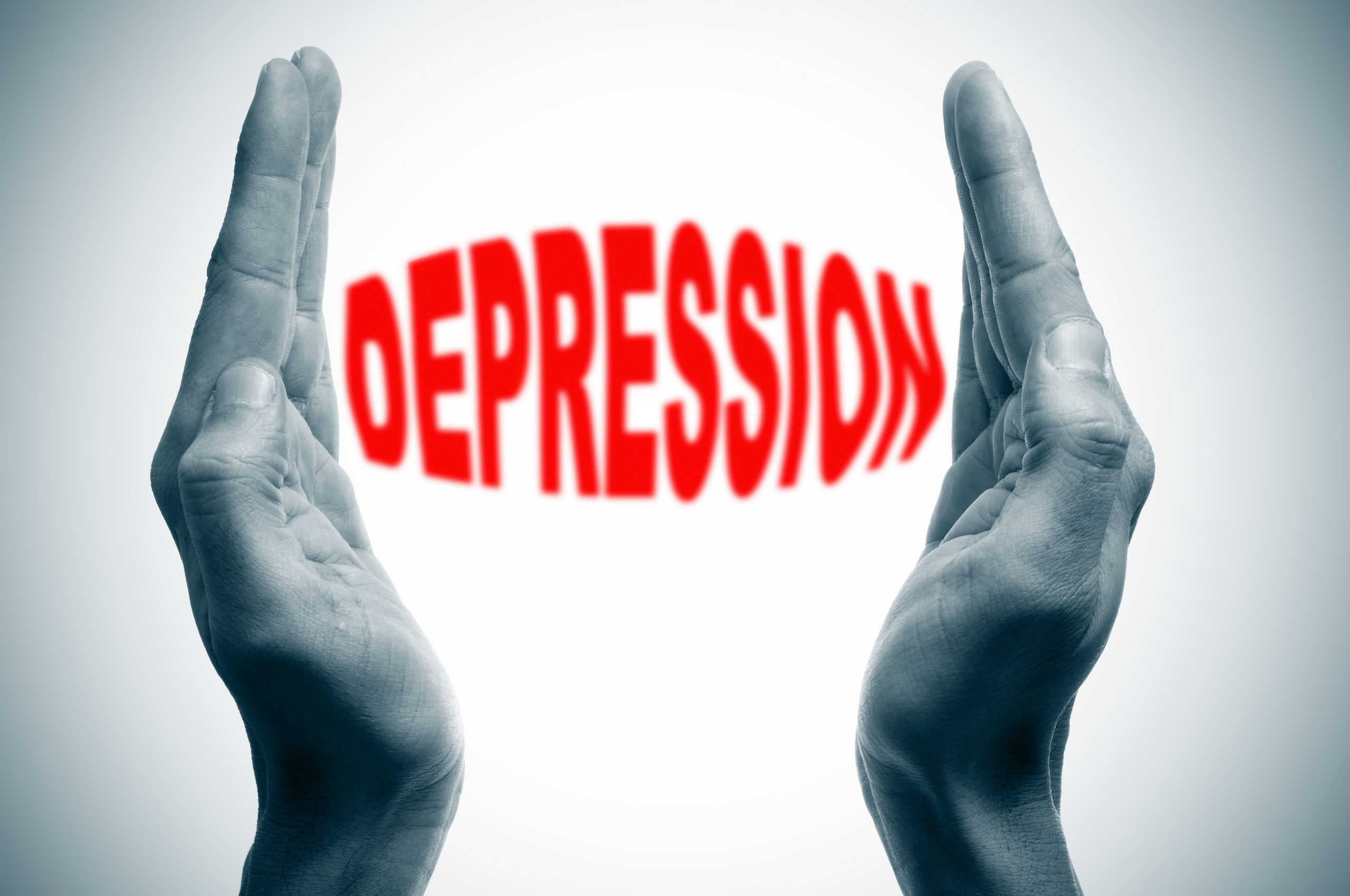The global rise of diagnosed mental disorders and increased mental healthcare service utilization has caused a growing burden for both healthcare systems and societies. New work from a group of interdisciplinary scholars explores the concept of the psychiatrization of society and its implications and calls for transdisciplinary research on the topic.
By “psychiatrization,” the authors refer to the processes by which more and more individuals are diagnosed and treated as mentally ill, and psychiatric practices shape more and more areas of life.

The increased medicalization of everyday symptoms from loneliness to sadness and depression, a process that converts these symptoms into psychiatric problems, has been both well-documented and highly criticized. The psychiatrization of childhood specifically has received significant attention, and psychiatrization generally has been critically investigated as a tool of coloniality.
Focusing on theory development and theoretical considerations, the authors suggest a basic model of psychiatrization as a starting point for further research. As the authors note:
“Psychiatrization is highly complex, diverse, and global. It involves various protagonists, and its effects are potentially harmful to individuals, to societies, and to public healthcare.”
These potential harms include overdiagnosis and overtreatment, undermining mental healthcare provision for the most severely ill, and “boosting medical interventions which incite individual coping with social problems, instead of encouraging long-term political solutions.”
The authors describe two processes of psychiatrization: top-down and bottom-up. In the top-down model, specialists and politicians, along with the pharmaceutical industry and insurance companies, drive both the usage of psychiatric practices and the application of psychiatric knowledges such as diagnostic categorizations.
Examples of top-down processes of psychiatrization include “large scale restructuring of mental health services, lawmaking, publication of new treatment and diagnostic guidelines, the introduction of new diagnoses into [the] DSM,” approval of existing psychotropic drugs for certain “new” conditions, compulsory mental health screening, and diagnosis requirements for access to educational support.
Bottom-up psychiatrization occurs when the needs and desires of patients and consumers induce changes at the top level and thus is driven by laypeople without professional ties to psychiatry or the healthcare system in general. In bottom-up processes, psychiatrization might be, to paraphrase Foucault, “requested, rather than imposed.”
“Typical drivers of bottom-up psychiatrization might be people searching for recognition of subjective suffering or difference through clinical diagnosis, people with mild or unspecific ‘symptoms’ using professional healthcare services without clear indication, or the demand of parents or other caregivers for diagnoses and treatment of perceived learning and behavioral disorders.”
The effects of both top-down and bottom-up processes of psychiatrization are diverse, highly ambivalent, and significantly influenced by localized and diverse technological, economic, political, and social factors. In doing this work, the authors hope to provide a conceptual framework for new interdisciplinary research on the psychiatrization of society, its impacts, risks, and benefits.
Reorientations of global mental healthcare systems through digitalization, deinstitutionalization, and scaling up of community care worldwide due to ongoing political and social changes make processes of psychiatrization increasingly relevant to social and political life. As the authors note, however, “it can be complicated for research to distinguish legitimate attempts to meet real unmet needs from building up infrastructures which create the artificial need or promote pathologization and overtreatment of mental distress.”
For these reasons, both qualitative and quantitative interdisciplinary research is needed to explore the different aspects of psychiatrization and identify reasons for engaging in psychiatrization processes, or for resisting them.
****
Beeker, T., Mills, C., Meerman, S., Thoma, S., Heinze, M., and von Peter, S. (2021). “Psychiatrization of Society: A Conceptual Framework and Call for Transdisciplinary Research.” Frontiers in Psychiatry, 20:645556.(Link)















Psychiatry is the legal danger. They have been granted authority to mete out harm for profit. End of story.
Report comment
I didn’t read the paper, but this sounds like thumb twiddling to me.
The Academy has already been “psychiatrized” (“psychologized?”) to such an extent that it has become almost useless as a critic of all motions towards fascism.
At this point much more than “interdisciplinary research” is needed to move understanding forward. I don’t think anything significant will happen along this line until people are willing to “leave the box” entirely. Will the “disciplines” that participate in this include theology? parapsychology? Would such even be allowed into the discussion? That would be a bare minimum.
Psychiatry comes from a deep dark place in this universe. It has been in use in one or more forms for more years than you can fit into an Earth calculator (maybe not literally, if you have one that uses scientific notation). Its manifestations here on Earth are actually fairly mild compared to what it has done elsewhere. It is an indispensable tool for control freaks. And if a population can be convinced that “mental illness” is a problem with the brain, as has happened here on Earth, then psychiatry’s dominance can be assured.
A society has no chance against psychiatry unless it fully embraces the concept of Spirit.
Report comment
l.e. cox, You wrote “Psychiatry comes from a deep dark place in the universe.” You then mention something about “forms” and it being here as long as Earth has. Well, honestly, I am not quite sure what you mean about “forms” and such, but you are absolutely One Million percent that “psychiatry comes from a deep dark place in the universe.” Perhaps, when people really get tired of the deep darkness and this is not the dark of the night because even at night, the sun shines and the stars shine, psychiatry, will finally once and for all be abolished. In the meantime, all we can do is be that early warning signal, that awful sound that we hear on the tv and radio that “danger” may be near by, imminent, or someone is in danger; but the danger here is psychiatry, and that horrible sound never goes away, because as far as psychiatry is concerned, we can’t signal the “all clear” just yet. But, with us as early warning signals, “canaries in the coal mines,” maybe, soon we can. Thank you.
Report comment
Rebel, I speak what I have learned. My sources are “fringe” so I usually don’t mention them. I can’t “prove” what I say. But if my sources are being truthful with me, and if I am relaying what they are telling me faithfully, then I do hope a certain level of validation of basic truth will result.
I often mention Spirit (one translation for the Greek “psyche”) in my comments. I do hope that at least a few readers will realize I am referring to Ian Stevenson’s group (now led by Jim Tucker) as well as groups more on the fringe, and go ahead and look into some of the subjects they study.
All the more unbelievable data I relay in my comments comes from either spiritual memory or spiritual perception, so the first thing anyone needs to come to grips with that data is a decent concept of Spirit.
Report comment
l.e. cox, What you write is very interesting. I am not sure about this “fringe” you speak of. I confess that I may not fee spiritually comfortable with what you call “fringe.” Of course, some may consider my beliefs as “fringe” because they do concentrate on Jesus Christ, as my Personal Savior. But, then, I do not expect other people to believe or think as I do. But, what is the most important here is that “psychiatry is nothing but pure evil; satan, the devil personified.” As someone who was raised in the Christian church, we were admonished to “renounce the devil in all his ways.” If I say yes in answer to that question, then that means that includes psychiatry, etc. Thus, in my opinion, there can be no such person as a “Christian psychiatrist.” This should be a “red flag” to any person, whether a Christian or not. I am so sorry that there are so many of us (some of my psychiatrists said they were Christian; some either were not or did not divulge their belief system) were conned and have suffered so very much. So many of us had to learn the hard way; psychiatry from any religious or spiritual viewpoint is just out and out pure evil. Thank you.
Report comment
I am a Scientologist and I also follow remote viewing, and the field sometimes known as parapsychology.
Report comment
“psychiatrization”–What an interesting word! It seems that “spell-check” doesn’t even recognize it as a word.
Could it be that this word, “psychiatrization” has been “made up” to absolve psychiatry, psychiatrists, Big Pharma, and all their “enablers, etc.” from any guilt or responsibility as to what they have done to society? “Psychiatrization”—I will have to think on this word, because it is an unreal word as is the world of psychiatry, etc. This is not the glorious unreal that makes us think or entertains us or uses the best of our imagination and intuition. No, it doesn’t sweep us away so we can encounter who we can be. It actually glorifies who we can’t be or should not be and uses that as a tool to demoralize us and worse; damage, injure, and nearly kill us. The “psychiatrization” of our society, tragically, only leads to one horrific conclusion: extinction. So, let’s stop studying it, glorifying it, etc. and end it now before its too late. Some scientists, politicians, etc. speak of climate change as that which will destroy the world and make us extinct. But, they better look into the rear view mirror, because, psychiatry, may very well be more the cause of this horror than any “climate change.” Thank you.
Report comment
“Psychiatrization is highly complex, diverse, and global. It involves various protagonists, and its effects are potentially harmful to individuals, to societies, and to public healthcare.”
I totally agree, “Interdisciplinary Research [is/was, long ago] Needed on the Risks of Psychiatrization.”
Especially since the psychiatrists and psychologists believe force drugging people with drug classes – like the antidepressants and antipsychotics, which can create anticholinergic toxidrome, which mimics the symptoms of their made up, but “invalid,” DSM disorders – is NOT “appropriate medical care.”
https://www.alternet.org/2010/04/are_prozac_and_other_psychiatric_drugs_causing_the_astonishing_rise_of_mental_illness_in_america/
https://en.wikipedia.org/wiki/Toxidrome
https://en.wikipedia.org/wiki/Neuroleptic-induced_deficit_syndrome
Our, seemingly pedophile controlled, governments and religions were dumber than dirt, to “partner with,” and give unchecked power to the systemic child abuse covering up, psychiatric and psychological professions.
https://www.madinamerica.com/2016/04/heal-for-life/
https://www.indybay.org/newsitems/2019/01/23/18820633.php?fbclid=IwAR2-cgZPcEvbz7yFqMuUwneIuaqGleGiOzackY4N2sPeVXolwmEga5iKxdo
https://www.amazon.com/Pedophilia-Empire-Chapter-Introduction-Disorder-ebook/dp/B0773QHGPT
https://books.google.com/books?id=xI01AlxH1uAC&printsec=frontcover&source=gbs_ge_summary_r&cad=0#v=onepage&q&f=false
Or perhaps, our governments, banking, legal, and religious industries could be described as pure evil, for putting unchecked power in the hands of millions of scientific fraud based “mental health professionals.” Who, since most are medically untrained – thus are ignorant about the common adverse and withdrawal symptoms of the psych drugs – function as the “omnipotent moral busy bodies,” about whom C. S. Lewis forewarned us.
https://www.goodreads.com/quotes/526469-of-all-tyrannies-a-tyranny-sincerely-exercised-for-the-good
Indeed, I agree with rebel, that those of us here are the “canaries in the coal mine,” warning others about the systemic crimes of the “powers that should not be.”
Report comment